

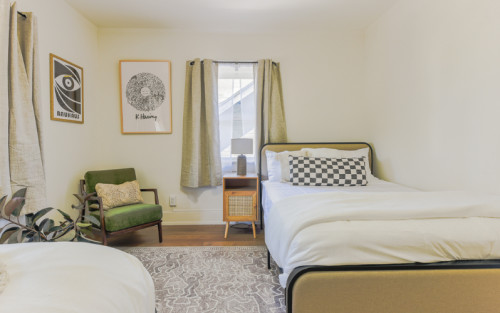




Numa Recovery Center
Verified Center
This provider's information has been quality-checked by Recovery.com's Research Team for accuracy and completeness, including center verification through appropriate third-party organizations.
Treatment Focus
This center treats substance use disorders and co-occurring mental health conditions. Your treatment plan addresses each condition at once with personalized, compassionate care for comprehensive healing.
Primary Level of Care
Offering intensive care with 24/7 monitoring, residential treatment is typically 30 days and can cover multiple levels of care. Length can range from 14 to 90 days typically.
Treatment Focus
This center treats substance use disorders and co-occurring mental health conditions. Your treatment plan addresses each condition at once with personalized, compassionate care for comprehensive healing.
Primary Level of Care
Offering intensive care with 24/7 monitoring, residential treatment is typically 30 days and can cover multiple levels of care. Length can range from 14 to 90 days typically.
Provider's Policy
We do NOT accept Medicaid, Medicare, or any state funded insurance. We work with many of the major insurance carriers as both an in-network provider and an out-of-network provider. We also accept private payments when possible.
Numa Recovery Center
Numa Recovery Center
About Numa Recovery Center
Numa Recovery Center in Los Angeles stands as a beacon of hope for clients grappling with addiction, offering a full spectrum of services that cater to every stage of recovery. Set within the vibrant Hollywood neighborhood, this luxury facility provides medically supervised detox, personalized residential care, and outpatient programs. Their programs blend evidence-based therapies with holistic practices, addressing both addiction and co-occurring mental health issues.
Medically Supervised Detox
At Numa, the detoxification process is approached with the utmost care. Recognizing the challenges of withdrawal, the center provides 24/7 medical supervision so clients feel safe and supported as they navigate this critical first step. Whether they are facing the grips of alcohol, opioids, or prescription drugs, clients can benefit from medication-assisted treatment (MAT) throughout and after treatment, allowing them to look inward and focus on recovery without the fear of withdrawal symptoms.
Treatment for Co-Occurring Disorders
Recognizing the interplay between substance use and mental health, Numa’s comprehensive approach allows clients to receive targeted support for co-occurring disorders and addiction simultaneously. A team of specialized clinicians develop personalized treatment plans to tackle issues like depression, anxiety, or trauma alongside addiction. By blending evidence-based therapies, medication management, and holistic practices like mindfulness and yoga, Numa empowers clients to build resilience and cultivate a fulfilling, substance-free life.
Luxury Amenities for Healing
Numa Recovery Center redefines the treatment experience by blending luxury with healing in the heart of Los Angeles. Clients enjoy upscale accommodations, including private rooms that promote restful sleep. The soothing aroma of lavender and eucalyptus permeates each private bedroom, creating a warm and welcoming atmosphere. The culinary program features gourmet, nutrient-dense meals crafted by skilled chefs, while amenities like infrared saunas, cold plunge baths, and serene outdoor spaces encourage relaxation. Their thoughtfully designed environment evokes a sense of peace, allowing full immersion in the healing process.
Highlights from the Center
Highlights
These highlights are provided by and paid for by the center.
Customized Treatment Plans
Holistic Approach
Perfect for Professionals
Private Rooms Available
Center Overview
Treatment Focus
This center treats substance use disorders and co-occurring mental health conditions. Your treatment plan addresses each condition at once with personalized, compassionate care for comprehensive healing.
Joint Commission Accredited
The Joint Commission accreditation is a voluntary, objective process that evaluates and accredits healthcare organizations (like treatment centers) based on performance standards designed to improve quality and safety for patients. To be accredited means the treatment center has been found to meet the Commission's standards for quality and safety in patient care.
Insurance Accepted
Cash Pay Rates
Estimated Cash Pay Rate
Center pricing can vary based on program and length of stay. Contact the center for more information. Recovery.com strives for price transparency so you can make an informed decision.
Meet Your Care Team

Ariella Morrow
Medical Director
MD

Karen Cohen
Clinical Director
LMFT
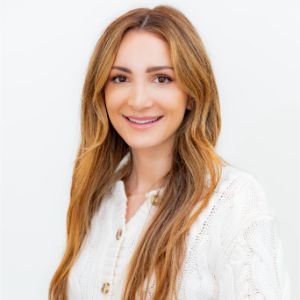
Ariana Gravanis
Clinical Director
LPCC

Isaac Reddick
Director of Operations

Kylee Neumaier
Primary Therapist
APCC, AMFT
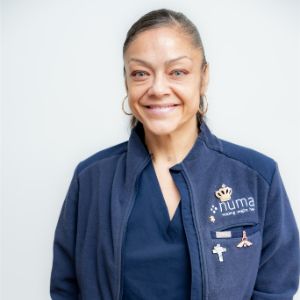
Veronica Quintero
Nurse
LVN
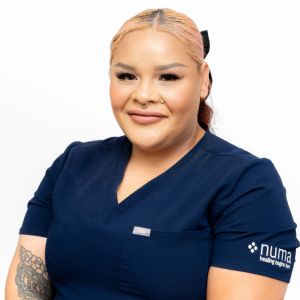
Perla Vallejo
Nurse
LVN

Morgan Reisel
Community and Alumni Relations

Jacqueline Gonzales
Case Manager
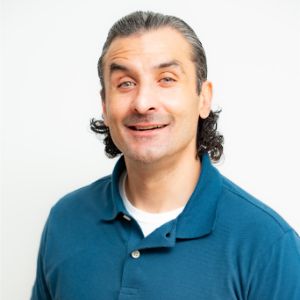
Angel Ozuna
Client Services Representative

Taleen Ourdukhanian
Client Services Representative




Levels of Care






Your Care Options
Specializations
Alcohol
Using alcohol as a coping mechanism, or drinking excessively throughout the week, signals an alcohol use disorder.
Detox
Detox fully and safely removes toxic substances from the body, allowing the next steps in treatment to begin with a clean slate.
Co-Occurring Disorders
A person with multiple mental health diagnoses, such as addiction and depression, has co-occurring disorders also called dual diagnosis.
Pet Friendly
For greater comfort and healing, pet-friendly treatment centers welcome dogs and animal companions to stay with their owners while they attend treatment.
Drug Addiction
Drug addiction is the excessive and repetitive use of substances, despite harmful consequences to a person's life, health, and relationships.
Family Involvement
Providers involve family in the treatment of their loved one through family therapy, visits, or both–because addiction is a family disease.
Personalized Treatment
The specific needs, histories, and conditions of individual patients receive personalized, highly relevant care throughout their recovery journey.
Prescription Drugs
It's possible to abuse any drug, even prescribed ones. If you crave a medication, or regularly take it more than directed, you may have an addiction.
Who We Treat
Young Adults
Emerging adults ages 18-25 receive treatment catered to the unique challenges of early adulthood, like college, risky behaviors, and vocational struggles.
Men and Women
Men and women attend treatment for addiction in a co-ed setting, going to therapy groups together to share experiences, struggles, and successes.
Approaches
Evidence-Based
A combination of scientifically rooted therapies and treatments make up evidence-based care, defined by their measured and proven results.
Holistic
A non-medicinal, wellness-focused approach that aims to align the mind, body, and spirit for deep and lasting healing.
Personalized Treatment
The specific needs, histories, and conditions of individual patients receive personalized, highly relevant care throughout their recovery journey.
Wellness
Wellness philosophies focus on the physical, mental, and spiritual wellness of each patient, helping them restore purpose with natural remedies.
Therapies
1-on-1 Counseling
Patient and therapist meet 1-on-1 to work through difficult emotions and behavioral challenges in a personal, private setting.
Meditation & Mindfulness
A practiced state of mind that brings patients to the present. It allows them to become fully aware of themselves, their feelings, and the present moment.
Mindfulness Therapy
This ancient practice can be mental, emotional, and even spiritual. In meditation, you focus your attention on the present moment without judgement.
Art Therapy
Visual art invites patients to examine the emotions within their work, focusing on the process of creativity and its gentle therapeutic power.
Experiential Therapy
With this approach, patients heal by doing. Therapists help patients process difficult emotions to speak, using guided activities like art or dance.
Expressive Arts
Creative processes like art, writing, or dance use inner creative desires to help boost confidence, emotional growth, and initiate change.
Substances We Treat
Alcohol
Using alcohol as a coping mechanism, or drinking excessively throughout the week, signals an alcohol use disorder.
Benzodiazepines
Benzodiazepines are prescribed to treat anxiety and sleep issues. They are highly habit forming, and their abuse can cause mood changes and poor judgement.
Chronic Relapse
Consistent relapse occurs repeatedly, after partial recovery from addiction. This condition requires long-term treatment.
Co-Occurring Disorders
A person with multiple mental health diagnoses, such as addiction and depression, has co-occurring disorders also called dual diagnosis.
Cocaine
Cocaine is a stimulant with euphoric effects. Agitation, muscle ticks, psychosis, and heart issues are common symptoms of cocaine abuse.
Drug Addiction
Drug addiction is the excessive and repetitive use of substances, despite harmful consequences to a person's life, health, and relationships.
Ecstasy
Ecstasy is a stimulant that causes intense euphoria and heightened awareness. Abuse of this drug can trigger depression, insomnia, and memory problems.
Heroin
Heroin is a highly addictive and illegal opioid. It can cause insomnia, collapsed veins, heart issues, and additional mental health issues.
Languages
Aftercare
Care Designed for Your Needs
Personal Amenities
Amenities
Special Considerations
Transition Program
Patients in a transition program gradually return to life outside treatment, helping lower chances of relapse and continue care in a less intense setting.
Clients can bring their own pet(s)
For greater comfort and healing, pet-friendly treatment centers welcome dogs and animal companions to stay with their owners while they attend treatment.
Pet Friendly
For greater comfort and healing, pet-friendly treatment centers welcome dogs and animal companions to stay with their owners while they attend treatment.
Flexible technology policies
Centers with flexible technology policies allow professionals to stay in touch with work and give patients a greater sense of connection and normalcy.
Activities
Yoga
Yoga is both a physical and spiritual practice. It includes a flow of movement, breathing techniques, and meditation.
Off-Site Activities
What people are saying
Treatment
5.0
Accommodations
5.0
Food & Nutrition
4.8
Value
5.0
Pros
- Beautiful Location (5)
- Luxurious Accommodations (4)
- Friendly & Competent Staff (4)
- Gourmet & Nutritious Food (4)
Eli
Treatment in 2024 • (30 days) • Reviewed 11/04/24
Former Client
•Oklahoma
M.A.E.
Treatment in 2024 • (30 days) • Reviewed 11/07/24
Former Client
•Music
•Los Angeles
Cade
Treatment in 2024 • (30 days) • Reviewed 11/01/24
Former Client
•Lodi
Anonymous
Treatment in 2024 • (30 days) • Reviewed 11/01/24
Loved One of a Former Client
•San Diego
Jay
Reviewed 07/07/24
Review from Rehabs.com






